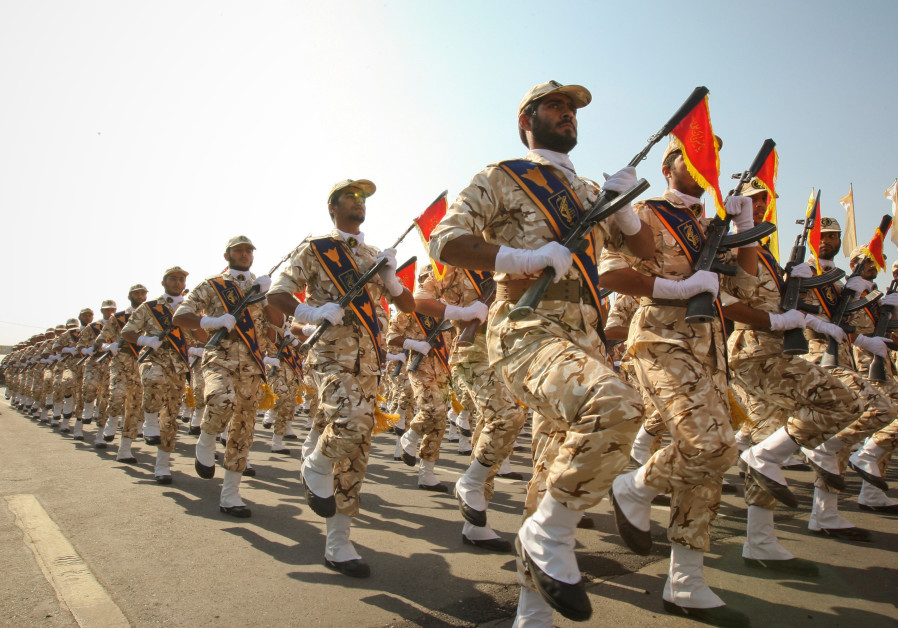Iranian ‘winter’ coming to northern border, analyst warns
جيروزالم بوست/مصنع صواريخ إيراني في الهرمل وآخر بين صيدا وصور
Anna Ahronheim/Jerusalem Post/February 14/18
Iran has created a foothold in Syria that only stands to grow stronger, warns Orit Perlov, an analyst at the Institute for National Security Studies.
Three days after Israel’s first direct confrontation with Iran on its northern border, concern remains over the growing danger posed by the Islamic Republic’s growing foothold in the neighborhood. “Winter is coming from the north where we have a concrete threat,” Orit Perlov, a social media analyst for the Institute for National Security Studies, told The Jerusalem Post in an interview just days before an Israeli F16I was downed over the country by Syrian air defenses.
“We have a factory for advanced weapons in the north of Lebanon, in Sunni areas,” she said referring to an Iranian-built factory near the town of Hermel in the eastern Bekaa Valley in northern Lebanon. It can produce the fairly accurate Fateh-110 missile with a range of close to 300 km. with a half-ton warhead.
“In the south, it would be a different story, we could very easily bomb it,” she said, adding that bombing a Shi’ite area would be viewed differently by pragmatic Sunni Gulf states, which behind closed doors, are growing closer to the Jewish state. According to a report by French online magazine Intelligence Online, another factory is located between the towns of Sidon and Tyre in southern Lebanon, which is capable of producing surface-toair and anti-tank missiles as well as unmanned aerial vehicles able to carry explosives.
Officials have repeatedly voiced concerns over the smuggling of sophisticated weaponry to Hezbollah and the growing Iranian presence on its borders with Syria, stressing that both are redlines for the Jewish state.
Defense Minister Avigdor Liberman has made it clear that while Israel does not want to start a third Lebanon war, the Jewish state is determined to prevent Iran from using Lebanon to produce precision missiles for Hezbollah that will hit deep inside the Israeli home front. According to IDF assessments, Hezbollah has at least 100,000 short-range rockets and several thousand more missiles that can reach the center of the country.
Hezbollah is able to mobilize close to 30,000 fighters and has flaunted its tunnel system, complete with ventilation, electricity and rocket launchers. Israel rarely comments on foreign reports of military activity but it has admitted to carrying out thousands of missions, including 100 air strikes in Syria to prevent Hezbollah from obtaining sophisticated weaponry such as precision missiles or technology and know-how from Iran. It is believed that these strikes are behind Iran’s reasoning to build indigenous underground weapons factories in Lebanon. While Liberman stated that “the last thing I want is for a third Lebanon war,” Israel is “determined to prevent Lebanon from becoming one large factory for the production of precision missiles.”
And if Israel does try to prevent that, Hezbollah is expected to respond by firing tens of thousands of missiles at the country. In the case of another war in the north, the IDF believes that it will not be contained to one front but along the entire northern border with both Syria and Lebanon involved.
Senior officials from Israel’s defense establishment have repeatedly stated that while the chance for escalation on the border is small, the smallest incident or a miscalculation by either side may lead to a large-scale and devastating war.
According to Perlov, it’s a dangerous scenario that Israel cannot afford to have. “We bombed the facility in Deir al-Zor and we didn’t have a war,” she said. “We prefer to do something and only have a minor price to pay. We don’t want another round because we have no end game. With the US giving us the green light we can find ourselves in Beirut, in Ankara – nobody will tell us to stop.”


















